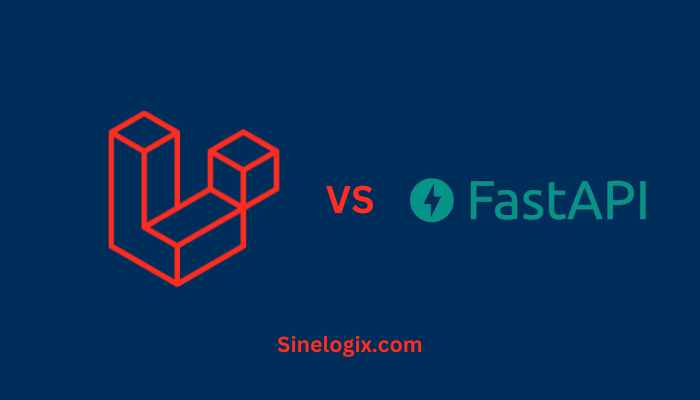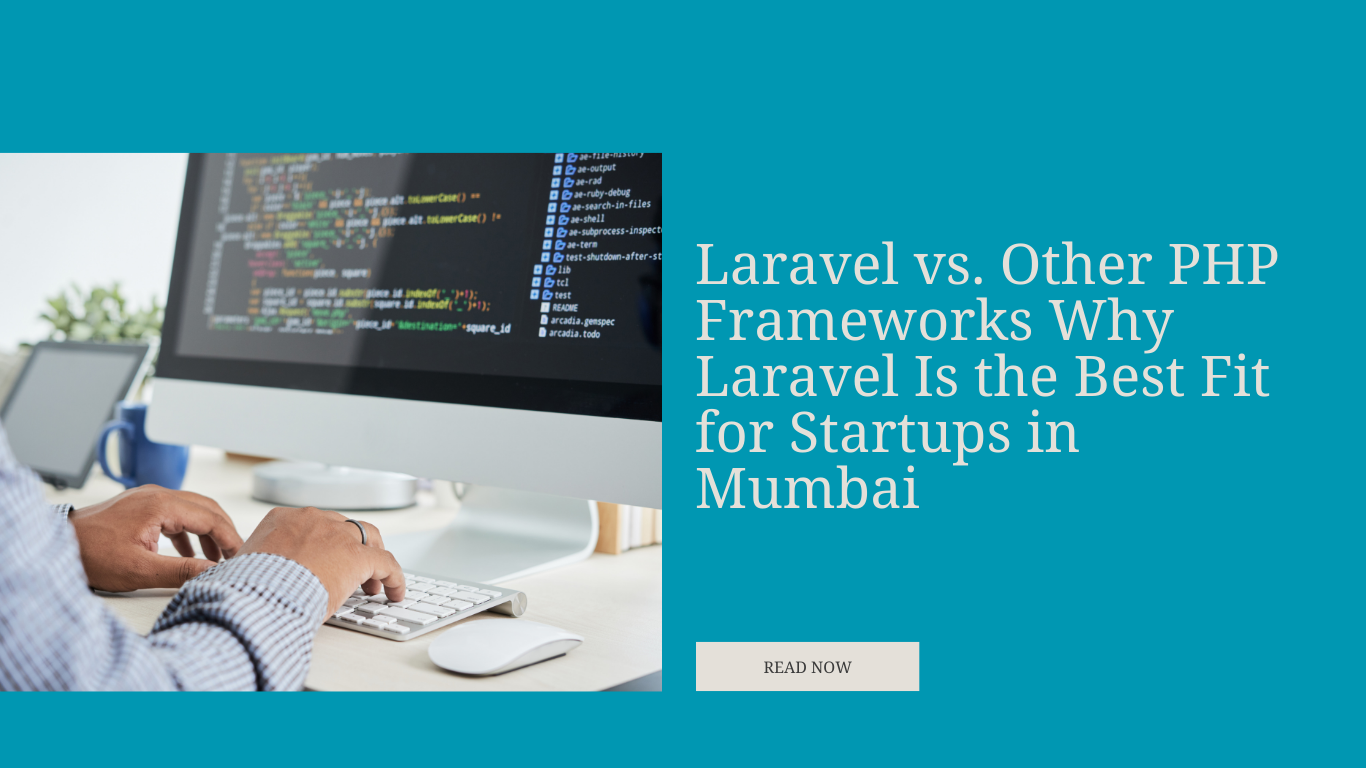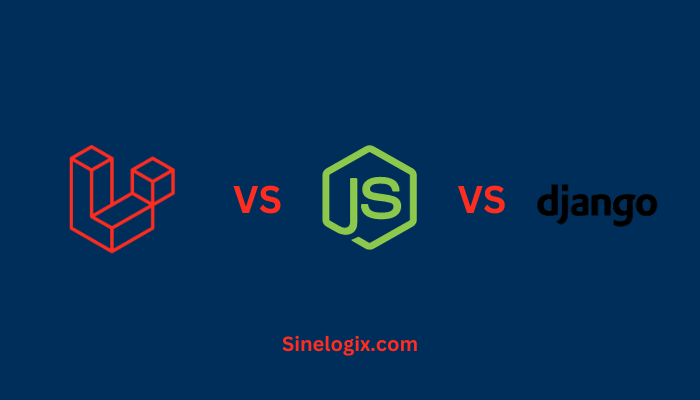Laravel, a robust PHP framework, and FastAPI, a modern Python web framework, represent two distinct approaches to web development. In this detailed analysis, we will explore various aspects of Laravel and FastAPI, shedding light on their features, performance, and suitability for different project scenarios.
Overview of Laravel and FastAPI
Laravel: Laravel is a PHP framework celebrated for its expressive syntax and developer-friendly environment. Following the MVC architectural pattern, Laravel provides tools for routing, templating (Blade engine), and ORM (Eloquent) for efficient database interactions. It boasts a robust ecosystem and supports rapid development, making it a popular choice for a broad spectrum of applications.
FastAPI: FastAPI is a modern, fast (high-performance), web framework for building APIs with Python 3.7+ based on standard Python type hints. It is designed to be easy to use and enables the creation of high-performance APIs quickly. FastAPI leverages the Starlette and Pydantic libraries for asynchronous support and data validation, respectively.
Language and Ecosystem
Laravel: Built on PHP, Laravel leverages the extensive PHP ecosystem. Composer, the PHP package manager, enhances Laravel’s capabilities by providing access to a wide array of third-party libraries and tools. Laravel’s ecosystem includes the Artisan command-line tool for automating tasks, contributing to a streamlined development workflow.
FastAPI: FastAPI is a Python framework, tapping into the rich Python ecosystem. As a part of the Python ecosystem, FastAPI benefits from a vast collection of libraries and tools available through the Python Package Index (PyPI). It embraces standard Python type hints for defining data types, contributing to a consistent and expressive development experience.
Architecture and Design Philosophy
Laravel: Laravel adheres to the MVC architectural pattern, emphasizing a clean separation of concerns. The framework follows an opinionated approach, providing conventions that enhance developer productivity. Laravel’s design philosophy prioritizes expressive syntax, developer happiness, and the creation of elegant and maintainable code.
FastAPI: FastAPI embraces a modern, asynchronous design philosophy, allowing for high-performance and scalable applications. It utilizes standard Python type hints for defining data structures and takes advantage of asynchronous programming to efficiently handle concurrent requests. FastAPI’s design encourages the use of standard Python features, promoting clarity and simplicity in code.
Learning Curve and Documentation
Laravel: Laravel is known for its developer-friendly syntax, making it accessible for PHP developers. Comprehensive documentation, guides, and tutorials facilitate the learning process. Resources like Laracasts provide video tutorials, contributing to a supportive learning environment.
FastAPI: FastAPI is designed to be intuitive and easy to learn, especially for developers familiar with Python. The framework’s documentation is extensive and includes interactive examples, enabling developers to quickly grasp its features. FastAPI’s adoption of standard Python type hints also aids in providing clear and concise documentation.
Community and Support
Laravel: Laravel boasts a large and active community, contributing to its growth and improvement. Forums, third-party packages, and regular updates showcase the community’s engagement. Laravel’s popularity ensures ongoing support and a wealth of resources for developers.
FastAPI: FastAPI has gained popularity rapidly, thanks to its performance and ease of use. While its community might not be as extensive as Laravel’s, it is growing steadily, and the framework benefits from the broader Python community. FastAPI’s creator actively maintains the framework, ensuring regular updates and improvements.
Performance and Scalability
Laravel: Laravel offers good performance for PHP applications and is suitable for various project sizes. Its scalability is enhanced by features like caching, queuing, and optimized database queries. Laravel Horizon assists in managing scalable applications efficiently.
FastAPI: FastAPI is designed for high performance, leveraging asynchronous programming and automatic data validation to handle a large number of concurrent requests efficiently. It is well-suited for building scalable APIs, and its asynchronous nature allows for optimal resource utilization.
Middleware and Request Handling
Laravel: Laravel’s middleware system provides a flexible mechanism for filtering HTTP requests. Middleware can perform tasks like authentication, logging, and modifying incoming requests, enhancing Laravel’s ability to handle various aspects of request processing.
FastAPI: FastAPI utilizes Starlette for handling requests and middleware, providing a robust foundation for building asynchronous APIs. The framework supports the use of middleware for tasks such as authentication, logging, and request modification, offering flexibility in request handling.
Database Integration and ORM
Laravel: Laravel’s Eloquent ORM simplifies database operations with an expressive syntax. It allows developers to interact with databases using object-oriented methods, making it easy to perform common tasks like querying and updating records. Laravel’s database migration system streamlines schema management.
FastAPI: FastAPI does not come with a built-in ORM. Instead, it allows developers to choose their preferred database library or ORM. This flexibility allows for seamless integration with popular Python database libraries like SQLAlchemy or databases.
Template Engine
Laravel: Laravel employs the Blade templating engine, known for its simplicity and readability. Blade supports template inheritance and allows developers to create modular and reusable views. Laravel’s approach to templating contributes to the framework’s focus on clean and maintainable code.
FastAPI: FastAPI is primarily designed for building APIs, and it does not include a template engine like Laravel. Instead, it focuses on providing features specifically tailored for API development, such as automatic OpenAPI and JSON Schema generation.
Testing and Quality Assurance
Laravel: Laravel places a strong emphasis on testing with PHPUnit, providing a robust testing environment. Developers can conduct various types of tests, including unit tests, feature tests, and integration tests seamlessly. Laravel Dusk facilitates browser automation testing, ensuring comprehensive coverage for web applications.
FastAPI: FastAPI supports testing through standard Python testing libraries such as Pytest. The use of standard Python testing tools makes it easy for developers to write and execute tests for their FastAPI applications. FastAPI’s automatic data validation also contributes to the overall quality assurance process.
Development Speed and Prototyping
Laravel: Laravel’s elegant syntax and built-in features contribute to rapid development. Laravel Spark, a package for SaaS application scaffolding, accelerates the creation of subscription-based web applications. The framework’s focus on developer-friendly syntax aids in quick prototyping, making it ideal for startups and projects with tight deadlines.
FastAPI: FastAPI is designed for speed and efficiency, allowing developers to quickly build high-performance APIs. Its automatic data validation, based on Python type hints, reduces the need for manual input validation, speeding up the development process. FastAPI’s asynchronous support further contributes to efficient backend development.
Mobile App Development
Laravel: While primarily a backend framework, Laravel can serve as the backend for mobile applications. Laravel Nova or API resources can be used to expose backend functionality for mobile app integration. Laravel’s API-centric approach facilitates the development of robust and secure APIs.
FastAPI: FastAPI, designed for building APIs, can be used as a backend framework for mobile applications. Its support for asynchronous programming aligns with the demands of modern mobile app development. FastAPI can provide a robust backend for mobile apps, especially those requiring high-performance APIs.
Community Trends and Adoption
Laravel: The Laravel community is dynamic, and the framework continues to evolve with frequent updates and new features. Laravel Vapor, a serverless deployment platform, reflects the community’s commitment to embracing modern cloud-native technologies. This adaptability ensures that Laravel remains relevant in the ever-changing landscape of web development.
FastAPI: FastAPI has gained traction rapidly, especially in the Python community. Its focus on performance, asynchronous support, and automatic data validation has resonated with developers building APIs. The framework’s adoption is on the rise, and its community is actively contributing to its growth.
Server Resource Utilization
Laravel: As an interpreted PHP framework, Laravel may require more server resources compared to frameworks written in lower-level languages. However, the ease of use, extensive feature set, and developer-friendly environment can justify the resource overhead in many scenarios.
FastAPI: FastAPI’s asynchronous nature allows for efficient resource utilization, especially in handling concurrent requests. Its design is geared towards optimal performance, making it a suitable choice for applications with high traffic and resource demands.
Ecosystem and Third-Party Integrations
Laravel: Laravel’s ecosystem is rich and diverse, with a wide array of third-party packages available through Composer. Laravel Forge simplifies server provisioning and deployment, while tools like Laravel Mix streamline asset compilation. The availability of packages and integrations enhances the development workflow and supports a variety of use cases.
FastAPI: FastAPI benefits from the broader Python ecosystem and the availability of numerous libraries through PyPI. While it may not have the same extensive ecosystem as Laravel, the Python community’s contributions provide a solid foundation for integrating third-party tools and libraries into FastAPI projects.
Containerization and Microservices
Laravel: Laravel applications can be containerized using tools like Docker, allowing for seamless deployment and scalability. Laravel’s modular structure and support for microservices architectures make it suitable for building distributed systems. Laravel Horizon aids in managing scalable Laravel applications efficiently.
FastAPI: FastAPI, with its asynchronous and scalable design, is well-suited for microservices architectures. Developers can containerize FastAPI applications using Docker or deploy them on cloud platforms. The framework’s support for containerization aligns with modern trends in scalable and distributed systems.
Internationalization and Localization
Laravel: Laravel provides robust support for internationalization and localization. Developers can easily manage language files, translate content, and adapt the application to different locales. Laravel’s localization capabilities contribute to building globally accessible web applications, a crucial aspect for projects targeting diverse audiences.
FastAPI: FastAPI, being a Python framework, inherits the internationalization and localization capabilities of the Python ecosystem. Libraries like Babel and Flask-Babel can be used to implement internationalization in FastAPI applications. While not as feature-rich as Laravel in this aspect, FastAPI can cater to projects with global audiences.
User Authentication and Authorization
Laravel: Laravel simplifies user authentication and authorization through the built-in Laravel Passport and Laravel Sanctum packages. These packages provide convenient solutions for API authentication and token management. Laravel’s focus on security features ensures a robust foundation for implementing user authentication and access control.
FastAPI: User authentication and authorization in FastAPI can be implemented using various Python libraries and middleware. FastAPI-Auth and OAuth2 libraries are commonly used for authentication, and developers can integrate with third-party authentication providers. The flexibility of FastAPI allows developers to tailor authentication solutions to project requirements.
SEO-Friendly Routing and URLs
Laravel: Laravel’s routing system allows developers to create clean, SEO-friendly URLs. The framework’s expressive routing syntax and the ability to define named routes contribute to building URLs that are both human-readable and optimized for search engines. Laravel’s approach to routing enhances the overall SEO performance of applications.
FastAPI: FastAPI, being focused on API development, does not inherently involve server-side rendering (SSR) for SEO optimization. While SEO considerations are vital, FastAPI’s design aligns more with the development of APIs, and additional techniques may be required for SEO optimization in frontend applications.
Related Articles:
Conclusion
Choosing between Laravel and FastAPI necessitates a careful consideration of project requirements, team expertise, and development preferences. Laravel’s elegance, feature richness, and PHP ecosystem make it a compelling choice for various applications, especially those favoring rapid development and frontend rendering.
FastAPI, with its focus on high performance, asynchronous capabilities, and automatic data validation, appeals to developers building APIs, especially in the Python ecosystem. The decision ultimately hinges on factors such as project goals, team proficiency, and specific use case requirements. Both Laravel and FastAPI contribute significantly to the diverse landscape of web development, catering to the evolving needs of developers and businesses across different domains and industries.




